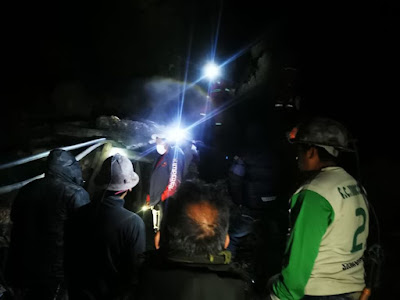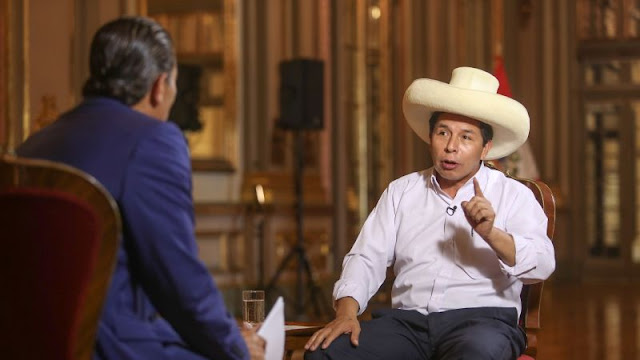From inside the Police, the officers affirm that, for the most part, those involved rotate in positions of the Felcn, Intelligence and Anticorruption, from where they extract information to commit crimes.
Maximiliano Dávila, former director of the Special Force for the Fight against Drug Trafficking (Felcn), was part of the "la threada de los uncles cochalas", a group of police officers that operated and had influence within the anti-drug force as of 2018. The former anti-drug chief is being held in the San Pedro prison and is being investigated for legitimization of illicit profits and drug trafficking.
“The uncles cochalas is a group that was consolidated in 2018 when, without having the merits, Dávila was appointed as National Director of Intelligence by Carlos Romero and the general who declared himself a militant of the MAS (Alfonso Mendoza), when the position corresponded to a colonel two years older and not one who never occupied the top positions in his promotion (1989)”, said a former member of the Felcn.
The members of that group took over from the structure of the anti-drug force. Despite the fact that they were already denounced in the management of the Vice Minister of Social Defense and Controlled Substances, Felipe Cáceres, they continued to be active in the institution of order, according to police sources consulted by Page Seven, mostly active duty officers who asked not to be identified by retaliation that may be taken against you.
The connections between the "cochala uncles" are obvious only by reviewing their destination orders, the disciplinary processes and common cases they face in the Prosecutor's Office, said another source in contact from Cochabamba.
He pointed out that the common characteristic of this group is that both the former directors of the Felcn and the "groups" of policemen linked to drug trafficking, for the most part, are from the Llajta.
"The names of these uncles cochalas are repeated over and over again in Intelligence and the Felcn," said another officer.
The uniformed men backed up their claims with some documents and assured that, if there were a transparent and in-depth investigation by the Police, the links between groups of policemen, coca growers and politicians with drug trafficking would be revealed.
“It is likely that his humble origins and speaking Quechua have made it easier for Dávila to relate to senior leaders and authorities of the MAS. He is originally from a family from Sipe Sipe, in Cochabamba, ”said another police officer.
More complaints against Maximiliano Dávila come to light, after his name headed the list of six defendants for "conspiring" to manufacture and transport cocaine from Bolivia to New York, United States (USA), based on investigations by the Drug Enforcement Administration (DEA).
The former anti-drug chief was arrested after two informants and a DEA agent infiltrated Bolivia, according to the version of another detainee for drug trafficking in Peru, Jorge Roca Suárez, Roof of Straw.
The US justice requested the extradition of Roof of Straw and that of former major Omar Rojas Echeverría, detained in Colombia since March 2021, who is also the brother of Colonel Alexander Rojas Echeverría, former inspector of the Bolivian Police. Both are from the Cochabamba municipality of Sacaba, as are three other family officers of theirs.
Intelligence reports indicate that one of Rojas's sisters was a councilor (MAS) in Sacaba, from 2010 to 2021. Another is the wife of the former national director of the Felcc, Alberto Aguilar.
“In 2018, Dávila resumed a structure that had already been formed by Omar Rojas Echeverría and his relatives. All of them had already been part of the Felcn and the Intelligence groups,” said another officer from Santa Cruz. He said that proof of the existence of these groups are the destination orders of various efforts.
Indeed, Dávila was departmental director of the Felcn in Cochabamba and Alexander Rojas in Santa Cruz in 2014; meanwhile, his brother Omar, also part of the Felcn, was dismissed for desertion that same year.
“Omar Rojas was arrested in Colombia and will be extradited along with two brothers (Montaño Fernández), whom he investigated for drug trafficking in 2012. That is the clearest proof that the links (of police groups) are from years in the Felcn and Intelligence”, indicated the same policeman.
He noted that there is a long history of police linked to drug gangs in Santa Cruz, Cochabamba and Beni. "That explains what happened to the entire group led by Gonzalo Medina (former director of the Felcc of Santa Cruz) in 2019," he added.
“Dávila formed a kind of general staff that he took with him wherever he was assigned; there are at least five key names that remain in their positions with a low profile since Omar Rojas was apprehended in Colombia. The five are in the reports that were already in 2021. Why didn't the Prosecutor's Office call them to testify? Only this year they expanded the investigation against Omar's wife," questioned the officer.
DEA infiltrators
"(Daniel Rodríguez Canela) contacted Bolivians to sell drugs and take them out of the country to arrest them, just like they did with me," he says.
Roca Suárez is also linked to the case of Omar Rojas and Dávila, but denied the links. He assured that the members identified as the "cochala uncles" were deceived by Rodríguez Canela (DEA) and his informant Ignacio Angus Nieto, whose whereabouts are unknown. Thatched Roof asked to investigate a doctor who works at a clinic in Santa Cruz, who treated them before the trips to Peru and Colombia in March 2021.
Directors and key
Uncle It is the code word used by the police to address a superior officer in code, so as not to alert civilians.
Directors In the 2013 administration, Colonel Mario Centellas was appointed as director of the Felcn. In 2015, Santiago Delgadillo took office, who in a striking way was in office for three years. In 2019, with a year less seniority, Maximiliano Dávila took command of the anti-drug force. Already in the government of Jeanine Añez, Javier Maldonado was appointed as director. In 2021 Edwin Pérez assumed the position and in this management José María Velasco was appointed.
Politics The officials affirm that the appointment of the director of the Felcn is the responsibility of the Government.








